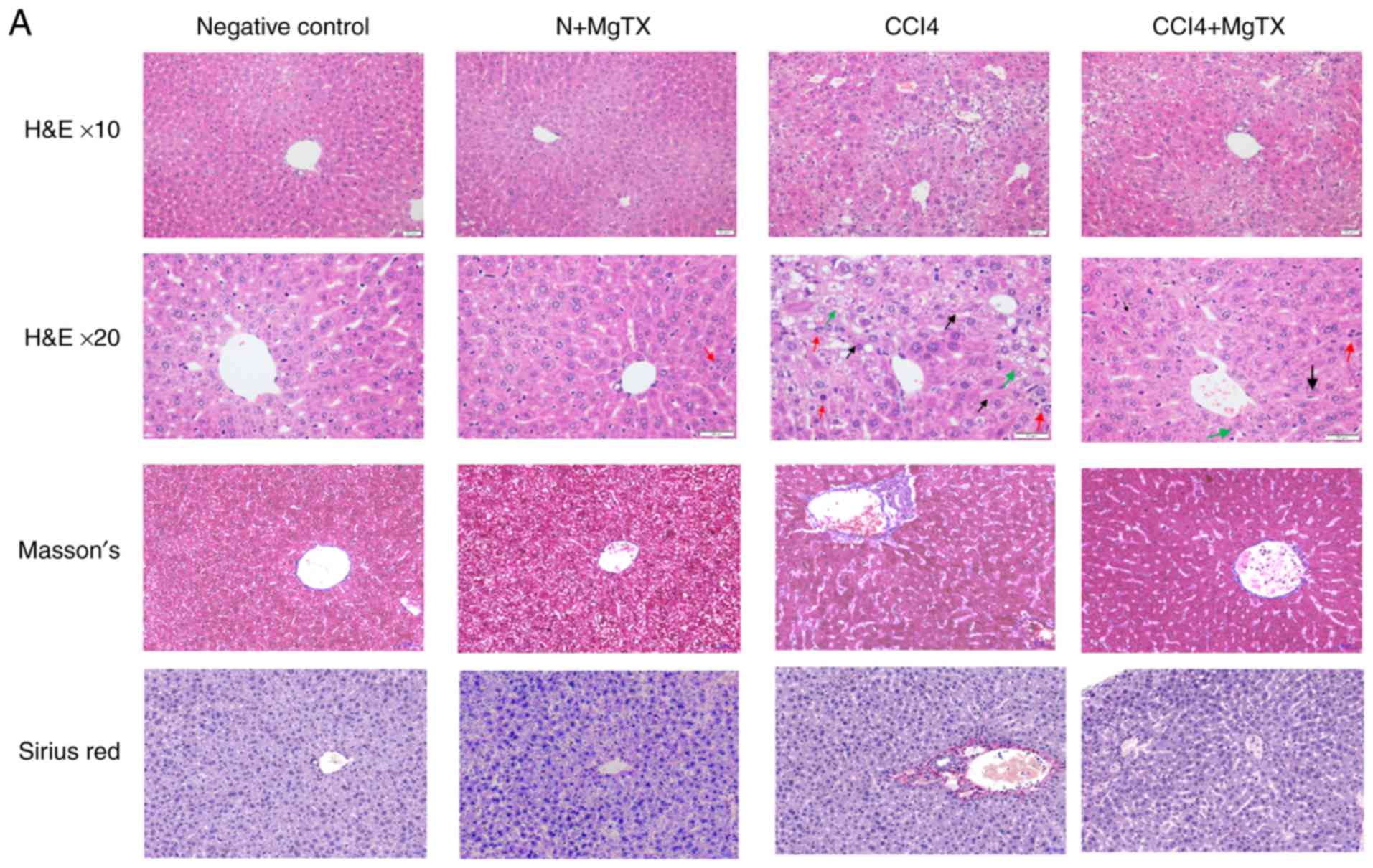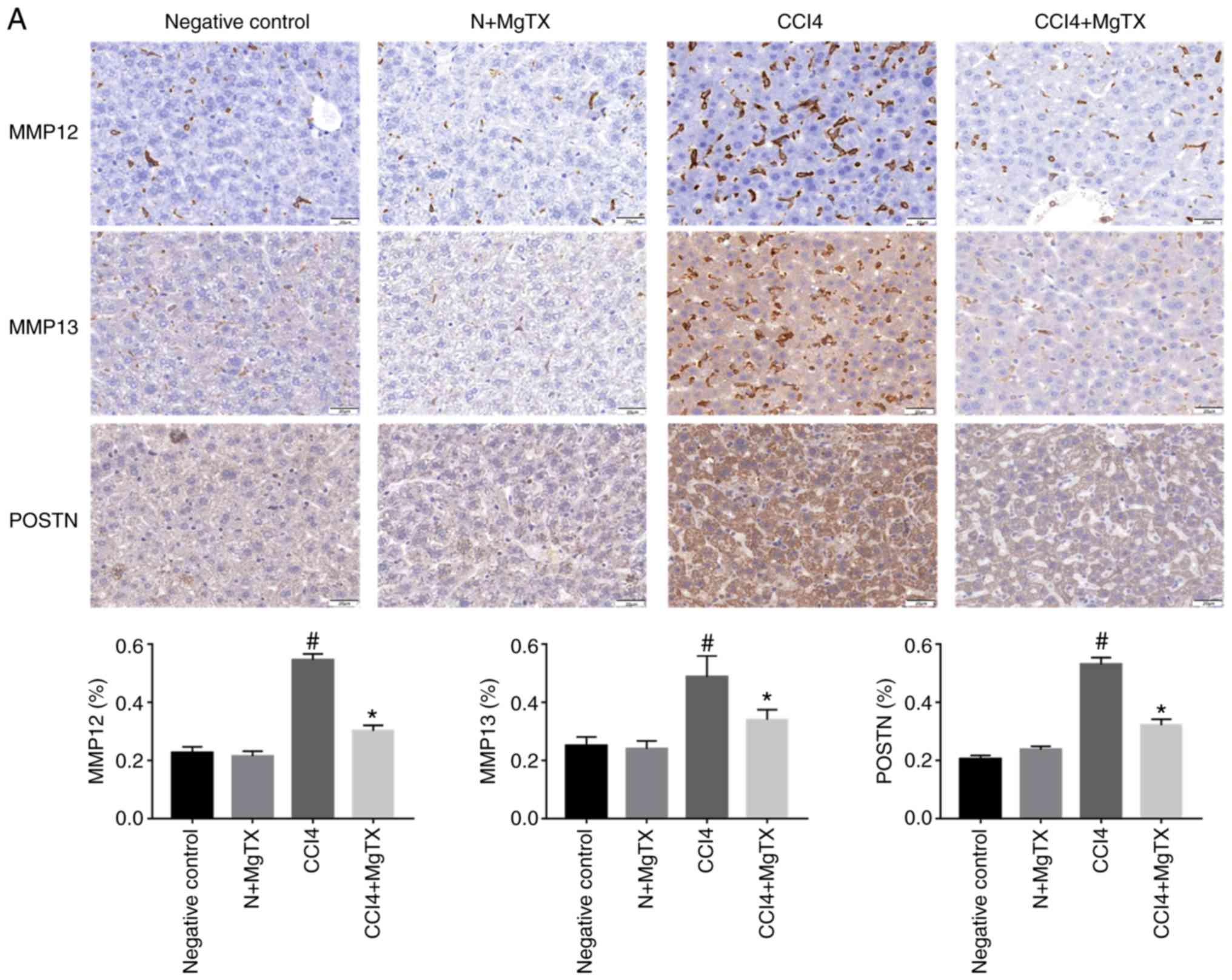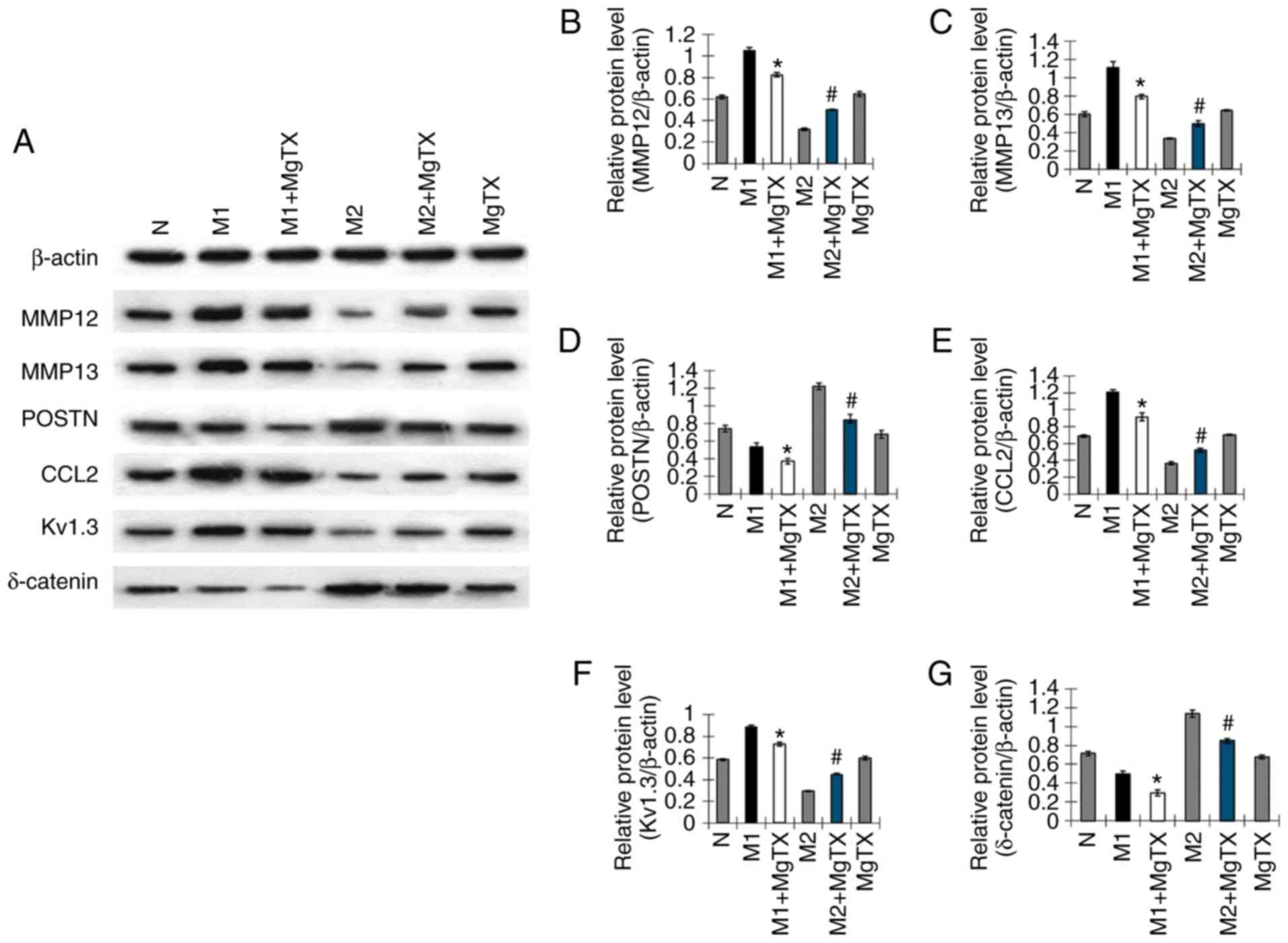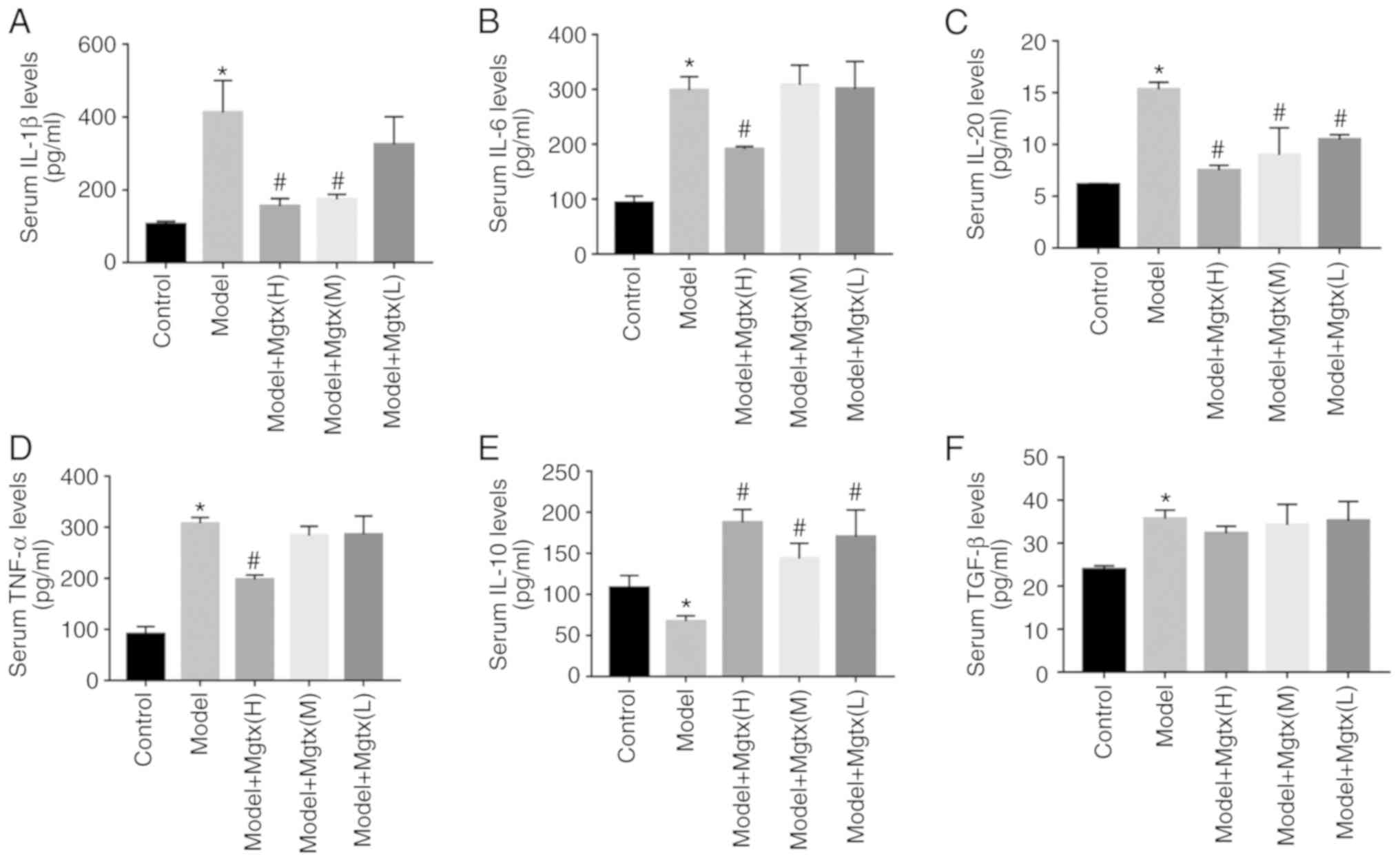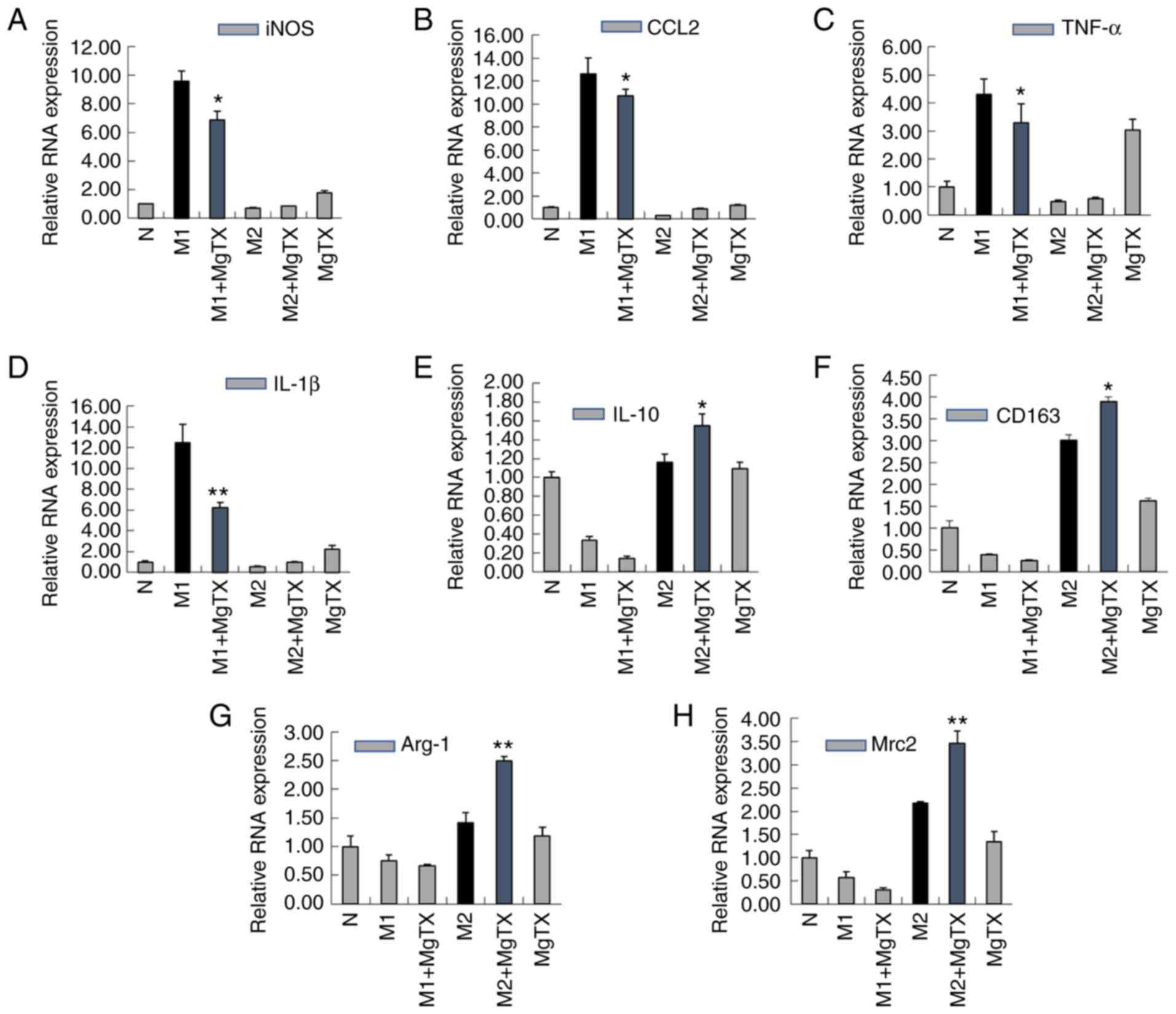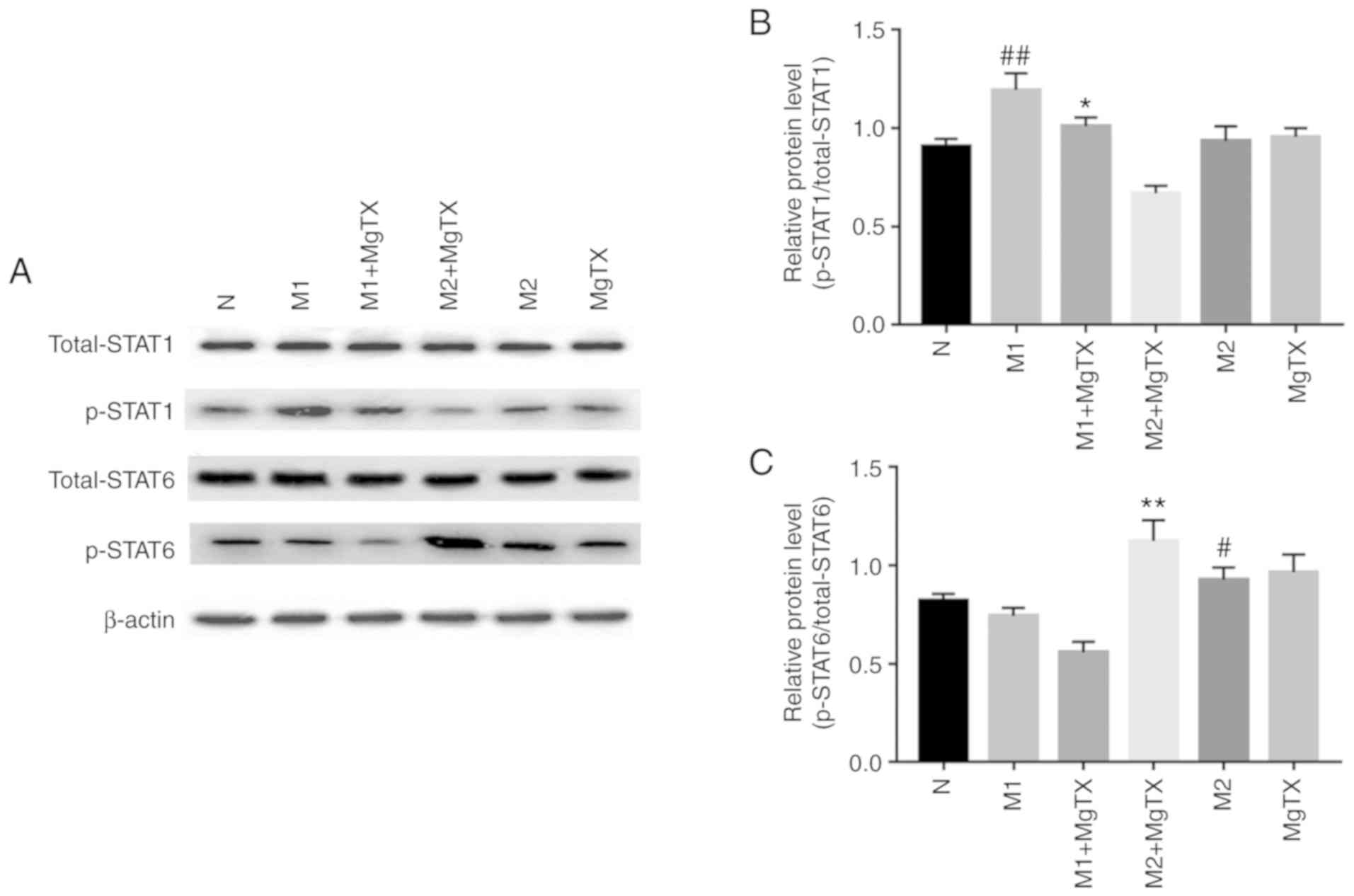|
1
|
Mederacke I, Hsu CC, Troeger JS, Huebener
P, Mu X, Dapito DH, Pradere JP and Schwabe RF: Fate tracing reveals
hepatic stellate cells as dominant contributors to liver fibrosis
independent of its aetiology. Nat Commun. 4:28232013. View Article : Google Scholar : PubMed/NCBI
|
|
2
|
Zheng Z, Xu X, Zhang X, Wang A, Zhang C,
Hüttemann M, Grossman LI, Chen LC, Rajagopalan S, Sun Q and Zhang
K: Exposure to ambient particulate matter induces a NASH-like
phenotype and impairs hepatic glucose metabolism in an animal
model. J Hepatol. 58:148–154. 2013. View Article : Google Scholar
|
|
3
|
Czaja AJ and Carpenter HA: Progressive
fibrosis during corticosteroid therapy of autoimmune hepatitis.
Hepatology. 39:1631–1638. 2004. View Article : Google Scholar : PubMed/NCBI
|
|
4
|
Schuppan D and Kim YO: Evolving therapies
for liver fibrosis. J Clin Invest. 123:1887–1901. 2013. View Article : Google Scholar : PubMed/NCBI
|
|
5
|
Duffield JS, Forbes SJ, Constandinou CM,
Clay S, Partolina M, Vuthoori S, Wu S, Lang R and Iredale JP:
Selective depletion of macrophages reveals distinct, opposing roles
during liver injury and repair. J Clin Invest. 115:56–65. 2005.
View Article : Google Scholar : PubMed/NCBI
|
|
6
|
Ramachandran P and Iredale JP:
Macrophages: Central regulators of hepatic fibrogenesis and
fibrosis resolution. J Hepatol. 56:1417–1419. 2012. View Article : Google Scholar : PubMed/NCBI
|
|
7
|
Chawla A, Nguyen KD and Goh YP:
Macrophage-mediated inflammation in metabolic disease. Nat Rev
Immunol. 11:738–749. 2011. View
Article : Google Scholar : PubMed/NCBI
|
|
8
|
Mosser DM and Edwards JP: Exploring the
full spectrum of macrophage activation. Nat Rev Immunol. 8:958–969.
2008. View
Article : Google Scholar : PubMed/NCBI
|
|
9
|
Gundra UM, Girgis NM, Gonzalez MA, San
Tang M, Van Der Zande HJP, Lin JD, Ouimet M, Ma LJ, Poles J,
Vozhilla N, et al: Vitamin A mediates conversion of
monocyte-derived macrophages into tissueresident macrophages during
alternative activation. Nat Immunol. 18:642–653. 2017. View Article : Google Scholar : PubMed/NCBI
|
|
10
|
Borthwick LA, Suwara MI, Carnell SC, Green
NJ, Mahida R, Dixon D, Gillespie CS, Cartwright TN, Horabin J,
Walker A, et al: Pseudomonas aeruginosa induced airway epithelial
injury drives fibroblast activation: A mechanism in chronic lung
allograft dysfunction. Am J Transplant. 16:1751–1765. 2016.
View Article : Google Scholar :
|
|
11
|
Gordon S and Martinez FO: Alternative
activation of macrophages: Mechanism and functions. Immunity.
32:593–604. 2010. View Article : Google Scholar : PubMed/NCBI
|
|
12
|
Murray PJ, Allen JE, Biswas SK, Fisher EA,
Gilroy DW, Goerdt S, Gordon S, Hamilton JA, Ivashkiv LB, Lawrence
T, et al: Macrophage activation and polarization: Nomenclature and
experimental guidelines. Immunity. 41:14–20. 2014. View Article : Google Scholar : PubMed/NCBI
|
|
13
|
Sica A, Invernizzi P and Mantovani A:
Macrophage plasticity and polarization in liver homeostasis and
pathology. Hepatology. 59:2034–2042. 2014. View Article : Google Scholar
|
|
14
|
Heymann F, Trautwein C and Tacke F:
Monocytes and macrophages as cellular targets in liver fibrosis.
Inflamm Allergy Drug Targets. 8:307–318. 2009. View Article : Google Scholar : PubMed/NCBI
|
|
15
|
Murray PJ and Wynn TA: Protective and
pathogenic functions of macrophage subsets. Nat Rev Immunol.
11:723–737. 2011. View
Article : Google Scholar : PubMed/NCBI
|
|
16
|
Chiaramonte MG, Donaldson DD, Cheever AW
and Wynn TA: An IL-13 inhibitor blocks the development of hepatic
fibrosis during a T-helper type 2-dominated inflammatory response.
J Clin Invest. 104:777–785. 1999. View
Article : Google Scholar : PubMed/NCBI
|
|
17
|
Kaviratne M, Hesse M, Leusink M, Cheever
AW, Davies SJ, McKerrow JH, Wakefield LM, Letterio JJ and Wynn TA:
IL-13 activates a mechanism of tissue fibrosis that is completely
TGF-beta independent. J Immunol. 173:4020–4029. 2004. View Article : Google Scholar : PubMed/NCBI
|
|
18
|
McKenzie GJ, Bancroft A, Grencis RK and
McKenzie AN: A distinct role for interleukin-13 in
Th2-cell-mediated immune responses. Curr Biol. 8:339–342. 1998.
View Article : Google Scholar : PubMed/NCBI
|
|
19
|
McKenzie GJ, Fallon PG, Emson CL, Grencis
RK and McKenzie AN: Simultaneous disruption of interleukin (IL)-4
and IL-13 defines individual roles in T helper cell type 2-mediated
responses. J Exp Med. 189:1565–1572. 1999. View Article : Google Scholar : PubMed/NCBI
|
|
20
|
Mackenzie AB, Chirakkal H and North RA:
Kv1.3 potassium channels in human alveolar macrophages. Am J
Physiol Lung Cell Mol Physiol. 285:L862–L868. 2003. View Article : Google Scholar : PubMed/NCBI
|
|
21
|
Kazama I, Maruyama Y, Murata Y and Sano M:
Voltage-dependent biphasic effects of chloroquine on delayed
rectifier K(+)-channel currents in murine thymocytes. J Physiol
Sci. 62:267–274. 2012. View Article : Google Scholar : PubMed/NCBI
|
|
22
|
Toldi G, Bajnok A, Dobi D, Kaposi A,
Kovács L, Vásárhelyi B and Balog A: The effects of Kv1.3 and IKCa1
potassium channel inhibition on calcium influx of human peripheral
T lymphocytes in rheumatoid arthritis. Immunobiology. 218:311–316.
2013. View Article : Google Scholar
|
|
23
|
Beeton C, Wulff H, Standifer NE, Azam P,
Mullen KM, Pennington MW, Kolski-Andreaco A, Wei E, Grino A, Counts
DR, et al: Kv1.3 channels are a therapeutic target for T
cell-mediated autoimmune diseases. Proc Natl Acad Sci USA.
103:17414–17419. 2006. View Article : Google Scholar : PubMed/NCBI
|
|
24
|
Chi V, Pennington MW, Norton RS, Tarcha
EJ, Londono LM, Sims-Fahey B, Upadhyay SK, Lakey JT, Iadonato S,
Wulff H, et al: Development of a sea anemone toxin as an
immu-nomodulator for therapy of autoimmune diseases. Toxicon.
59:529–546. 2012. View Article : Google Scholar
|
|
25
|
Kazama I, Maruyama Y, Endo Y, Toyama H,
Ejima Y, Matsubara M and Kurosawa S: Overexpression of delayed
rectifier K(+) channels promotes in situ proliferation of
leukocytes in rat kidneys with advanced chronic renal failure. Int
J Nephrol. 2012:5815812012. View Article : Google Scholar : PubMed/NCBI
|
|
26
|
Shao PP, Liu CJ, Xu Q, Zhang B, Li SH, Wu
Y, Sun Z and Cheng LF: Eplerenone reverses cardiac fibrosis via the
suppression of tregs by inhibition of Kv1.3 channel. Front Physiol.
9:8992018. View Article : Google Scholar : PubMed/NCBI
|
|
27
|
Moreno C, Prieto P, Macías Á,
Pimentel-Santillana M, de la Cruz A, Través PG, Boscá L and
Valenzuela C: Modulation of voltage-dependent and inward rectifier
potassium channels by 15-epi-lipoxin-A4 in activated murine
macrophages: Implications in innate immunity. J Immunol.
191:6136–6146. 2003. View Article : Google Scholar
|
|
28
|
Livak KJ and Schmittgen TD: Analysis of
relative gene expression data using real-time quantitative PCR and
the 2(-Delta Delta C(T)) method. Methods. 25:402–408. 2001.
View Article : Google Scholar
|
|
29
|
Yang Y, Wu XQ, Li WX, Huang HM, Li HD, Pan
XY, Li XF, Huang C, Meng XM, Zhang L, et al: PSTPIP2 connects DNA
methylation to macrophage polarization in CCL4-induced mouse model
of hepatic fibrosis. Oncogene. 37:6119–6135. 2018. View Article : Google Scholar : PubMed/NCBI
|
|
30
|
Bitto N, Liguori E and La Mura V:
Coagulation, microenvironment and liver fibrosis. Cells. 7:pii:
E85. 2018. View Article : Google Scholar : PubMed/NCBI
|
|
31
|
Wang KK and Czaja AJ: Hepatocellular
carcinoma in corticosteroid-treated severe autoimmune chronic
active hepatitis. Hepatology. 8:1679–1683. 1988. View Article : Google Scholar : PubMed/NCBI
|
|
32
|
Nishiguchi S, Kuroki T, Nakatani S,
Morimoto H, Takeda T, Nakajima S, Shiomi S, Seki S, Kobayashi K and
Otani S: Randomised trial of effects of interferon-alpha on
incidence of hepatocellular carcinoma in chronic active hepatitis C
with cirrhosis. Lancet. 346:1051–1055. 1995. View Article : Google Scholar : PubMed/NCBI
|
|
33
|
Roberts SK, Therneau TM and Czaja AJ:
Prognosis of histological cirrhosis in type 1 autoimmune hepatitis.
Gastroenterology. 110:848–857. 1996. View Article : Google Scholar : PubMed/NCBI
|
|
34
|
Singal AG, Volk ML, Jensen D, Di Bisceglie
AM and Schoenfeld PS: A sustained viral response is associated with
reduced liver-related morbidity and mortality in patients with
hepatitis C virus. Clin Gastroenterol Hepatol. 8:280–288.
288.e12010. View Article : Google Scholar
|
|
35
|
Lok AS, Everhart JE, Wright EC, Di
Bisceglie AM, Kim HY, Sterling RK, Everson GT, Lindsay KL, Lee WM,
Bonkovsky HL, et al: Maintenance peginterferon therapy and other
factors associated with hepatocellular carcinoma in patients with
advanced hepatitis C. Gastroenterology. 140:840–849. 2011.
View Article : Google Scholar :
|
|
36
|
Bruix J, Poynard T, Colombo M, Schiff E,
Burak K, Heathcote EJ, Berg T, Poo JL, Mello CB, Guenther R, et al:
Maintenance therapy with peginterferon alfa-2b does not prevent
hepatocellular carcinoma in cirrhotic patients with chronic
hepatitis C. Gastroenterology. 140:1990–1999. 2011. View Article : Google Scholar : PubMed/NCBI
|
|
37
|
Krenkel O and Tacke F: Liver macrophages
in tissue homeostasis and disease. Nat Rev Immunol. 17:306–321.
2017. View Article : Google Scholar : PubMed/NCBI
|
|
38
|
Seki E and Schwabe RF: Hepatic
inflammation and fibrosis: Functional links and key pathways.
Hepatology. 61:1066–1079. 2015. View Article : Google Scholar :
|
|
39
|
Baeck C, Wei X, Bartneck M, Fech V,
Heymann F, Gassler N, Hittatiya K, Eulberg D, Luedde T, Trautwein C
and Tacke F: Pharmacological inhibition of the chemokine C-C motif
chemo-kine ligand 2 (monocyte chemoattractant protein 1)
accelerates liver fibrosis regression by suppressing Ly-6C(+)
macrophage infiltration in mice. Hepatology. 59:1060–1072. 2014.
View Article : Google Scholar : PubMed/NCBI
|
|
40
|
Ramachandran P, Pellicoro A, Vernon MA,
Boulter L, Aucott RL, Ali A, Hartland SN, Snowdon VK, Cappon A,
Gordon-Walker TT, et al: Differential Ly-6C expression identifies
the recruited macrophage phenotype, which orchestrates the
regression of murine liver fibrosis. Proc Natl Acad Sci USA.
109:E3186–E3195. 2012. View Article : Google Scholar : PubMed/NCBI
|
|
41
|
Madala SK, Pesce JT, Ramalingam TR, Wilson
MS, Minnicozzi S, Cheever AW, Thompson RW, Mentink-Kane MM and Wynn
TA: Matrix metalloproteinase 12-deficiency augments extracellular
matrix degrading metalloproteinases and attenuates IL-13-dependent
fibrosis. J Immunol. 184:3955–3963. 2010. View Article : Google Scholar : PubMed/NCBI
|
|
42
|
Conway SJ, Izuhara K, Kudo Y, Litvin J,
Markwald R, Ouyang G, Arron JR, Holweg CT and Kudo A: The role of
periostin in tissue remodeling across health and disease. Cell Mol
Life Sci. 71:1279–1288. 2014. View Article : Google Scholar :
|
|
43
|
Mosher DF, Johansson MW, Gillis ME and
Annis DS: Periostin and TGF-β-induced protein: Two peas in a pod?
Crit Rev Biochem Mol Biol. 50:427–439. 2015.
|
|
44
|
Zhao XA, Chen G, Liu Y, Chen Y, Wu H,
Xiong Y, Wang G, Jia B, Li Y, Xia J, et al: Curcumin reduces Ly6Chi
monocyte infiltration to protect against liver fibrosis by
inhibiting Kupffer cells activation to reduce chemokines secretion.
Biomed Pharmacother. 106:868–878. 2018. View Article : Google Scholar : PubMed/NCBI
|
|
45
|
Eder C: Ion channels in monocytes and
microglia/brain macrophages: Promising therapeutic targets for
neurological diseases. J Neuroimmunol. 224:51–55. 2010. View Article : Google Scholar : PubMed/NCBI
|
|
46
|
Rutar M, Natoli R and Provis JM: Small
interfering RNA-mediated suppression of Ccl2 in Müller cells
attenuates microglial recruitment and photoreceptor death following
retinal degeneration. J Neuroinflammation. 9:2212012. View Article : Google Scholar
|
|
47
|
Pellicoro A, Ramachandran P, Iredale JP
and Fallowfield JA: Liver fibrosis and repair: Immune regulation of
wound healing in a solid organ. Nat Rev Immunol. 14:181–194. 2014.
View Article : Google Scholar : PubMed/NCBI
|
|
48
|
Kruglov EA, Nathanson RA, Nguyen T and
Dranoff JA: Secretion of MCP-1/CCL2 by bile duct epithelia induces
myofibroblastic transdifferentiation of portal fibroblasts. Am J
Physiol Gastrointest Liver Physiol. 290:G765–G771. 2006. View Article : Google Scholar
|
|
49
|
Rockey DC, Bell PD and Hill JA: Fibrosis-a
common pathway to organ injury and failure. N Engl J Med.
372:1138–1149. 2015. View Article : Google Scholar : PubMed/NCBI
|
|
50
|
Chiu YS, Wei CC, Lin YJ, Hsu YH and Chang
MS: IL-20 and IL-20R1 antibodies protect against liver fibrosis.
Hepatology. 60:1003–1014. 2014. View Article : Google Scholar : PubMed/NCBI
|
|
51
|
Sziksz E, Pap D, Lippai R, Béres NJ,
Fekete A, Szabó AJ and Vannay Á: Fibrosis related inflammatory
mediators: Role of the IL-10 cytokine family. Mediators Inflamm.
2015:7646412015. View Article : Google Scholar : PubMed/NCBI
|
|
52
|
Galastri S, Zamara E, Milani S, Novo E,
Provenzano A, Delogu W, Vizzutti F, Sutti S, Locatelli I, Navari N,
et al: Lack of CC chemokine ligand 2 differentially affects
inflammation and fibrosis according to the genetic background in a
murine model of steatohepatitis. Clin Sci (Lond). 123:459–471.
2012. View Article : Google Scholar
|
|
53
|
Khan Z, Cao DY, Giani JF, Bernstein EA,
Veiras LC, Fuchs S, Wang Y, Peng Z, Kalkum M, Liu GY and Bernstein
KE: Overexpression of the C-domain of angiotensin-converting enzyme
reduces melanoma growth by stimulating M1 macrophage polarization.
J Biol Chem. 294:4368–4380. 2019. View Article : Google Scholar : PubMed/NCBI
|
|
54
|
Ding N, Wang Y, Dou C, Liu F, Guan G, Wei
K, Yang J, Yang M, Tan J, Zeng W and Zhu C: Physalin D regulates
macrophage M1/M2 polarization via the STAT1/6 pathway. J Cell
Physiol. 234:8788–8796. 2019. View Article : Google Scholar
|
|
55
|
Darnell JE Jr, Kerr IM and Stark GR:
Jak-STAT pathways and transcriptional activation in response to
IFNs and other extracellular signaling proteins. Science.
264:1415–1121. 1994. View Article : Google Scholar : PubMed/NCBI
|
|
56
|
Herbert DR, Hölscher C, Mohrs M, Arendse
B, Schwegmann A, Radwanska M, Leeto M, Kirsch R, Hall P, Mossmann
H, et al: Alternative macrophage activation is essential for
survival during schistosomiasis and downmodulates T helper 1
responses and immunopathology. Immunity. 20:623–635. 2004.
View Article : Google Scholar : PubMed/NCBI
|
|
57
|
Brombacher F, Arendse B, Peterson R,
Hölscher A and Hölscher C: Analyzing classical and alternative
macrophage activation in macrophage/neutrophil-specific IL-4
receptor-alpha-deficient mice. Methods Mol Biol. 531:225–252. 2009.
View Article : Google Scholar : PubMed/NCBI
|















